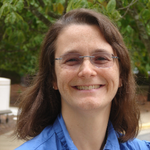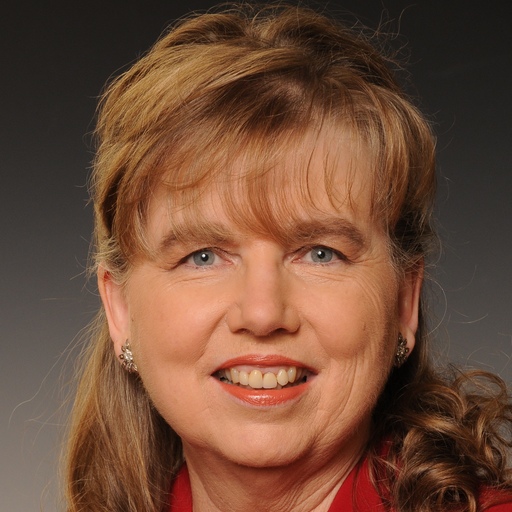For decades, women have been meaningful contributors in the technology industry. Some of the earliest contributions were from Dr. Grace Hopper, a computer scientist and U.S. Navy rear admiral, whose work led to the development of COBOL and the first computer compiler, to the more recent contributions of Kimberly Bryant, founder and chief executive officer of Black Girls Code, which provides coding education to young women of color.
SHARE has some of its own luminaries in the field, including IBM Fellow, CIO DevSecOps CTO, and Distinguished Engineer Rosalind Radcliffe who is dedicated to mentoring others on DevOps and other mainframe topics; Melinda Varian, whose contributions to the virtual machine (VM) community planted the seeds for a network where collaboration and knowledge sharing is key; and Pam Taylor, past SHARE president (2008-2010), who stepped up to influence an industry and its standards for REXX, Java, and more.
Rosalind Radcliffe Pays It Forward Through Education

Rosalind Radcliffe
Rosalind Radcliffe, IBM's DevSecOps chief technology officer, has received the President's Award for more than three decades of service. During that time, she's volunteered for a variety of SHARE projects and programs from DevOps to the application development integration and infrastructure and interactive system productivity facility, among others. Her contributions also supported the Rational Team Concert's and UrbanCode Deploy's support for standard mainframe development activities.
Radcliffe's work on IBM's service oriented architecture (SOA) management strategy and her book, “Enterprise Bug Busting: From Testing Through CI/CD to Deliver Business Results,” are just some of her accomplishments. Beyond her in-the-trenches work, Radcliffe is one of SHARE's most prolific and recognized speakers, and a SHARE volunteer who freely shares her broad system expertise.
Radcliffe has previously said that her book was a way for her to expand her ability to teach others. "I wanted to publish the book to tell the stories to a larger audience to help all clients in the industry learn from the experiences of others," she says. "I included as much of the best practices and advice as I could to help organizations with z Systems, people who knew the value of the system, and people who may not understand z/OS to give them the background and perspective they need to succeed."
Mentoring gives back to the mainframe community by increasing employee engagement, improving team morale, driving better performance, and increasing productivity. Radcliffe understands this also builds company loyalty by demonstrating that colleagues are invested in the careers of their colleagues. Additionally, mentors gain a fresh perspective from mentees on projects or problems.
Even as she attends SHARE events, Radcliffe is always on the lookout for members who are looking to give back to the community. "I always want to see people grow and develop, and anyone willing to try, I want to help," but she adds, "Everyone should mentor. Just keep an eye out for people you think are doing good things and help make sure they get what they need."
Melinda Varian Built a Lasting Virtual Machine (VM) Network

Melinda Varian
Melinda Varian, who was awarded the President's Award and the John R. Ehrman Award, is still considered one of SHARE's outstanding technical experts in VM by her peers. Through her insightful presentations and teaching papers, which continue to be shared by the VM community, she fostered the creation of a network for the VM community in the 1980s and it still exists 40 years later.
"I was basically trying to boost VM by teaching people how to use and support it," she says. "It is gratifying to learn that people think I was of assistance to them and, of course, I especially enjoyed giving young women a hand up."
Varian is considered one of the most unselfish educators in the field, providing sustained excellence in technical education since the 1980s as a teacher, speaker, author, mentor, and coach. Her papers, "VM and the VM Community: Past, Present, and Future," "What Mother Never Told You About VM Service," and "VM and VM Community," offer introductory to expert level expertise on CMS pipelines. Through her efforts, the VM community has shared concepts and real code, which has led to breakthroughs incorporated by IBM.
When presenting at SHARE events, her sessions were always full and well received by attendees. For those who couldn't attend in person (even before the days of virtual events), her papers were prepared with such detail that readers were able to glean as much information as those who attended her sessions in person. Varian's work on 1983's SHARE Software Service Task Force (SSTF) was later formally adopted as a SHARE position. Her work on other topics has benefited not only the VM community, but also the mainframe community as a whole, enabling all technologists to become proficient in their craft.
Through attention to detail, sense of ownership and vision, and commitment to the VM group's common goals, Varian created the hallmarks of a lasting network within the mainframe field. Her hands-on approach passed knowledge onto others and ensured they had a clear path to success, leading the VM community to continue with its work today.
Pam Taylor Steered SHARE's Influence

Pam Taylor
Pam Taylor, who began her IT career in academia, was exposed at her first commercial job to products that ran in 16 operating environments (five of which used IBM hardware). "Early on, I got experience with MVS (now z/OS), VM (both CMS and CSS), ROSCOE (Remote Operating System Conversational Online Environment), and VSE/Interactive Computing and Control Facility along with other big iron from CDC, Univac, Burroughs, and Honeywell not to mention the various minicomputers that were flourishing at the time," she said.
"I credit that first job with giving me clarity on the importance — and the nuances — of both interoperability and user expectations that technology will look, feel, and perform the same, regardless of what's processing the electrons under the covers. To put it succinctly, standardization," explains Taylor.
SHARE has a long history of influencing not just the capabilities of IBM software but the IT industry as a whole. According to Taylor, "The pinnacle of SHARE’s engagement with industry standards came at a very important time when the nature of enterprise IT was in flux. New technology was popping up almost more rapidly than practitioners could consume it." Taylor explains, "There was a high risk that the user perspective might be overlooked amid all the astonishingly wonderful, geeky coolness of emerging tech."
As SHARE's director of industry relations, Taylor led a team that created a plan for active participation in U.S. and international standards-making bodies for programming languages, codes and character sets, license-use management, security, and other aspects of enterprise computing. Her team identified individuals to represent SHARE on those committees, and they cultivated SHARE members' viewpoints to develop a consensus of the official position of SHARE. "It was actually quite exciting to discover the widespread enthusiasm within the standards development community for the presence of a real user perspective, which I count as a win both for SHARE and for the broader IT community," Taylor says.
Taylor herself represented SHARE on the standards committees for REXX (vice-chair), ECMAScript (to which the JavaScript language conforms), and IEEE Floating Point Arithmetic and on the short-lived attempt to create a vendor-independent standard for Java. She spearheaded the effort to register an official SHARE position on competing decimal arithmetic specifications being offered for the IEEE standard. "Decimal arithmetic is particularly important,” says Taylor, “for banks and other enterprises that deal with high volumes of financial transactions because binary rounding errors of even a thousandth of a penny can accumulate, becoming significant dollars. In the end, the published standard included both decimal specifications, but the decimal floating point unit in today's System Z hardware is based on SHARE's preferred specification.”
Women Spark Enterprise Technology Growth
SHARE's pillars of education, networking, and influence thrive as technologists mentor each other, communicate problems and solutions in SHARE communities and at the biannual SHARE events, and spread their influence to software and hardware developers. With the theme for International Women's Day (March 8) being "DigitALL: Innovation and technology for gender equality," SHARE's community is the perfect place to engender inclusive and transformative technology and digital education efforts.
Rosalind Radcliffe, Melinda Varian, and Pam Taylor are just three SHARE participants and volunteers who have left their indelible mark on the mainframe community and enterprise computing history. There are a plethora of women leaders in technology from, "the women code breakers at Bletchley Park, to the 'Hidden Figures' who put John Glenn in orbit, to Margaret Hamilton who led the software development team which put humans on the moon, to the women who lead tech companies today," explained Taylor. She urges everyone to "find that spark — your spark — and go for it!"